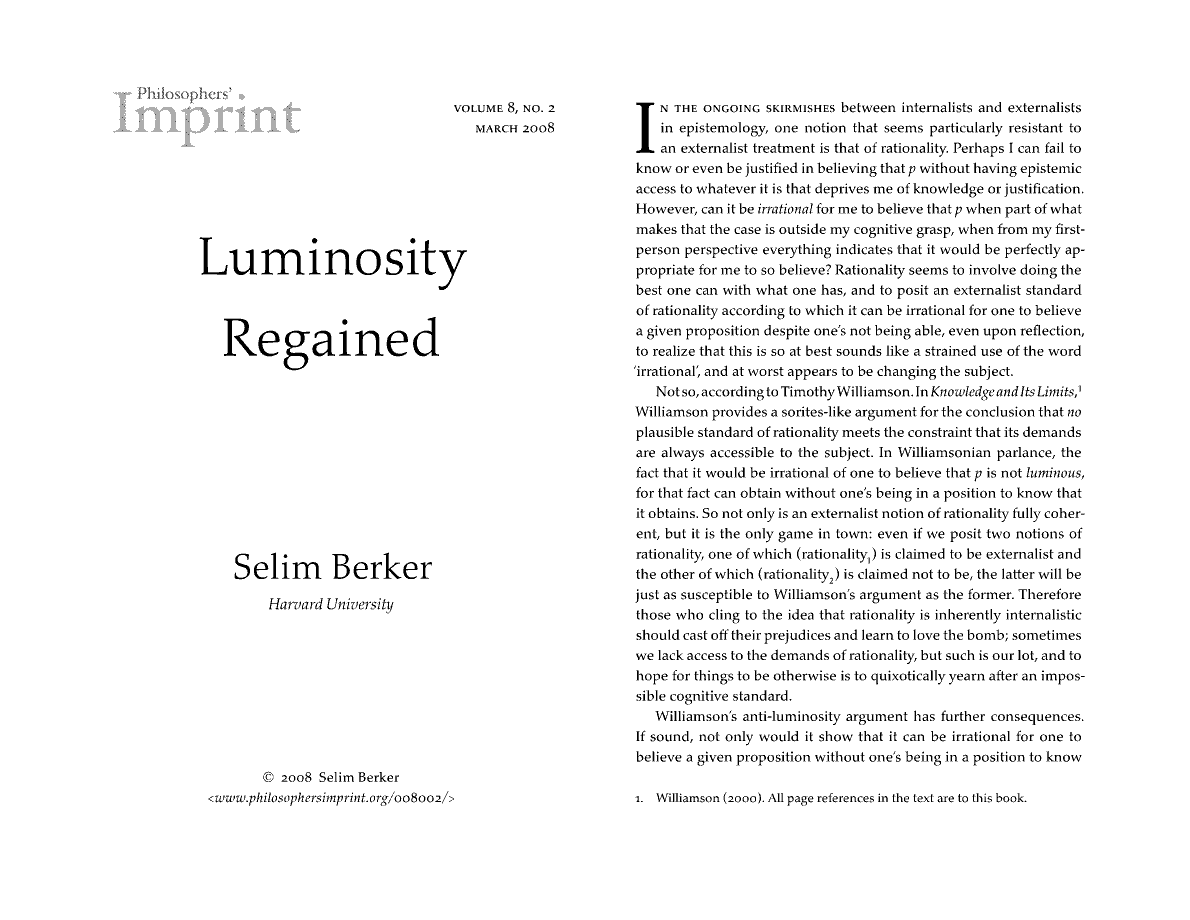Luminosity Regained
Skip other details (including permanent urls, DOI, citation information): This work is licensed under a Creative Commons Attribution-NonCommercial-NoDerivatives 3.0 License. Please contact mpub-help@umich.edu to use this work in a way not covered by the license.
For more information, read Michigan Publishing's access and usage policy.
Abstract
The linchpin of Williamson (2000)'s radically externalist epistemological program is an argument for the claim that no non-trivial condition is luminous-that no non-trivial condition is such that whenever it obtains, one is in a position to know that it obtains. I argue that Williamson's anti-luminosity argument succeeds only if one assumes that, even in the limit of ideal reflection, the obtaining of the condition in question and one's beliefs about that condition can be radically disjoint from one another. However, no self-respecting defender of the luminosity of the mental would ever make such an assumption. Thus Williamson can only secure his controversial claims in epistemology by taking for granted certain equally controversial claims in the philosophy of mind. What emerges is that the best bet for defending an internalist epistemology against Williamson's attack is to take there to be a tight, intimate connection between (to take one example) our experiences and our beliefs upon reflection about the obtaining of those experiences, or between (to take another example) the rationality of our beliefs and our beliefs upon reflection about the rationality of those beliefs.



